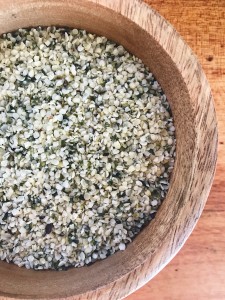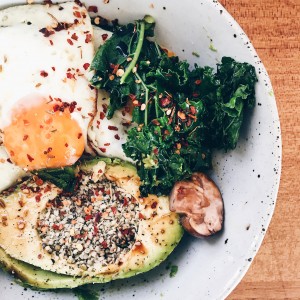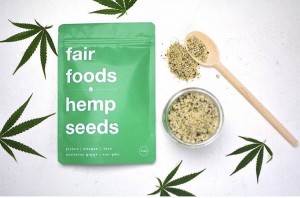by Mindy Duncan | Naturopath
Now that we will no longer have to make ‘body creams’ with our beloved hemp seeds and can finally talk freely about the benefits of consuming this delicious seed it’s important we discuss the many, and there are many, benefits of this whole-food nutrient rich food source.
Just to be clear……
As of April 2017 Food Standards Australia New Zealand (FSANZ) finally approved the proposal to permit the sale of low-THC hemp foods for human consumption, meaning that the Food Standards Code will be amended to allow the sale of low THC hemp foods. However these changes will not be come into effect until November 2017.
….now lets celebrate what is to come, the countdown is on!
What is hemp & how does it differ from marijuana?
Hemp & marijuana are indeed members of the same species, Cannabis sativa, but are actually completely different plants. Hemp is a ‘non-drug variety of the cannabis species’ which has been extensively studied for its nutritional potential. There are in fact many varieties of hemp grown for food purposes. According to recent literature it’s one of humanities oldest crops, with records suggesting it dates back over 6000 years!!
Hemp contains almost undetectable concentrations (we’re talking 0.001%) of tetrahydrocannabinol (THC), the psychoactive ingredient that is commonly associated with this plant species. In other words, you could eat truckloads of the stuff and never really getting any “happier” if you catch my drift. The only buzz you’ll get from hemp will be nutritional.
Hemp is used not only as a nutritionally dense food source but for:
- making textiles & clothing
- building materials
- paper & packaging
- body care & cosmetic products
- cleaning products
- animal & livestock feed
Hemp is also a fantastic rotation crop for farmers to plant in-between harvest to help replenish the soil of nutrients, improving succeeding yields, not to mention it’s incredibly sustainable & biodegradable!
Why is hemp beneficial for us to consume?
Hemp is loaded with health benefits, it’s a perfect blend of easily digestible plant-based protein, essential fatty acids, dietary fiber, antioxidants and a number of vitamins & minerals.
Here’s the breakdown:
Protein
Hemp is a source of complete protein, meaning that it contains all the amino acids (essential & non-essential) necessary to keep your body satisfied. Other foods which are classified as a complete protein include eggs, quinoa and meat. One serving (30g) of hemp seeds provides 10g protein! This alone makes it a fantastic food, not only for vegans & vegetarians, but anyone who wishes to consume a more plant-based diet. The forms of protein in hemp, edestin and albumin, are also easily digestible, meaning that it is much gentler on the digestive system and perfect for those who experience gas, bloating & indigestion with other proteins.
Fats
Hemp is loaded with essential fatty acids which are necessary in protecting and promoting healthy cell membrane integrity, hormone production & brain function (just to name a few). Made up of over 80% polyunsaturated fatty acids (PUFAs), which have been proven to be beneficial in lowering LDL cholesterol and preventing heart disease. Hemp also contains an optimal ratio of omega 3 to omega 6 fatty acids and contains gamma-linoleic acid (GLA), a highly anti-inflammatory fatty acid metabolite, beneficial for skin, heart, digestive & mental health. In other words, hemp is a highly anti-inflammatory & protective food.
Nutrients
Hemp is a substantial source of vitamins & minerals including magnesium, manganese, potassium, iron, Vitamin B1 & B2. As well as providing trace amounts of Vitamin E, C, B6, zinc, copper & calcium.
Dietary Fiber
Hemp seeds are an excellent source of dietary fiber, both soluble & insoluble, to promote healthy digestion & assist in the reduction of constipation, diarrhoea & bloating.
Which type of hemp is best for me?
As always we are spoilt for choice as hemp comes in a number of different forms. In my opinion I find the hemp seeds to be the most versatile, not only because of their balanced macro & micronutrient profile, but because of their mild nutty flavour they can be used in so many dishes, both sweet & savoury. However hemp oil & protein powders are also great options.
 Hemp Seeds
Hemp Seeds
Hemp seeds are a perfect blend of protein, essential fatty acids, dietary fibre & minerals. The seeds have a very mild nutty flavour & super simple to integrate into your daily diet. Perfect for anyone wanting to supercharge their diet!
Hemp Oil
Using the oil is a fantastic way to boost essential fatty acids in the diet as it contain 80% PUFAs and an ideal ratio of omega 3:omega 6. Perfect for adding to salads & meals post-cooking. Avoid heating or cooking with hemp oil as it may destroy some of beneficial properties.
Hemp Protein
Hemp protein is a complete protein and provides approx. 16g protein per 30g serving. The seeds are generally cold-pressed to separate the oil, the remain component is ground into protein powder. Perfect for those who react to other plant based proteins as hemp is very gentle on the digestive system.
What’s the best way to eat hemp?
The options are honestly as endless as your imagination. Here are just a few of my favourite ways to include hemp seeds:
 Throw them into salads
Throw them into salads- Add to smoothies (they make the smoothies oh so creamy)
- Sprinkle on top of your favourite yoghurt or brekky bowl
- Add to trail mixes
- Mix into your morning porridge
- Sprinkle on top of your avo toast
- Use them in baking & raw desserts
- Mix them with chickpeas to make an extra delicious hummus
- Add them into protein ball recipes
- Make hemp seed milk or mix into other nut milk recipes.
- Get creative!!
…….Or make a body cream if you must 😉

